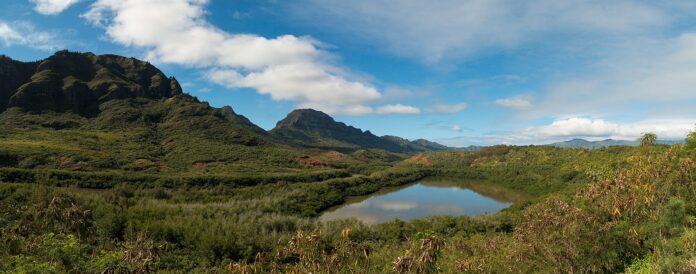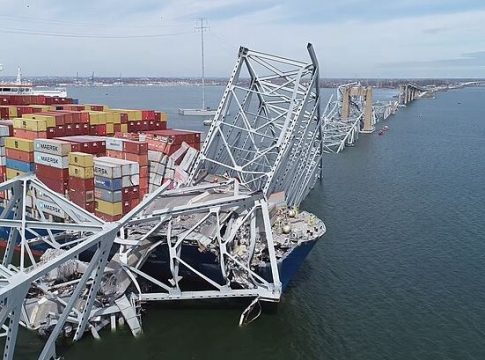Indigenous fishponds in Hawaiʻi, known as loko iʻa, could promote food sustainability with increased rates of fish inside and around the ponds.
This finding comes from a study published by researchers at the University of Hawaiʻi at Mānoa’s Hawaiʻi Institute of Marine Biology (HIMB), Technology Networks reported.
Aquaculture, or the cultivation of aquatic organisms, makes up only less than 1% of Hawaiʻi’s locally available seafood. However, the study found loko iʻa could result in surplus fish in the pond as well as promote nursery ground seeding in surrounding land, according to Technology Networks.
“We have demonstrated the ability of Indigenous aquaculture systems to produce a surplus of fish as well as supplement fisheries in the surrounding estuary,” said lead author and marine biology PhD candidate Anne Innes-Gold, Technology Networks reported. “We have heard people voice the idea that historically, loko iʻa provided nursery grounds that may have supplemented fish populations in the estuary. Our study is the first that we are aware of to demonstrate this idea in academic literature.”
Before the 21st century, loko iʻa historically yielded 2 million pounds of fish every year. By 1994, only six of 500 loco iʻa were in operation, according to Technology Networks.
LATEST STORIES
This decrease in operating loco iʻa was caused by factors including changed philosophies toward governance and economics, the annexation of the Hawaiian government, natural disasters, modern development, and cultural-economic changes, NOAA Fisheries reported.
In the past, one of the largest loko i‘a on Oʻahu, called Kawainui, fed thousands of families. However, the space is “minuscule in comparison to its original state” and unsuitable for wildlife cultivation due to neglect and “colonization limiting cultural practices,” Manoa Now reported.
This led many, including the researchers from the University of Hawaiʻi at Mānoa, to recognize the restoration of loko i‘a as a modern-day solution to increase food security.
“As aquaculture continues to provide a growing proportion of our seafood globally, revival of Indigenous aquaculture systems will be beneficial to sustainably maintain and increase our seafood supply,” said Innes-Gold, Technology Networks reported.
AsAmNews is published by the non-profit, Asian American Media Inc. Follow us on Facebook, X, Instagram, TikTok and YouTube. Please consider making a tax-deductible donation to support our efforts to produce diverse content about the AAPI communities. We are supported in part by funding provided by the State of California, administered by the California State Library in partnership with the California Department of Social Services and the California Commission on Asian and Pacific Islander American Affairs as part of the Stop the Hate program. To report a hate incident or hate crime and get support, go to CA vs Hate.








